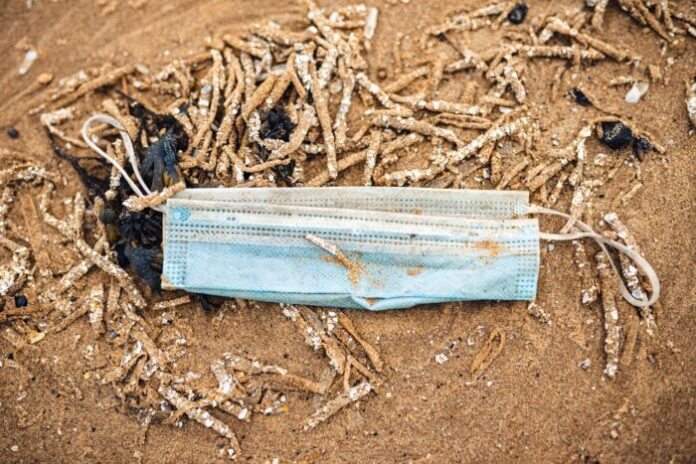
The masks abandoned on street corners are an ecological bomb ready to explode. Recent studies estimate that we use 129 billion globally every month, or 3 million per minute. Most are disposable made from plastic microfibers, and take 450 years to decompose. From this data it can be deduced that incorrect disposal can lead to a real environmental disaster.
With increasing reports of inappropriate disposal of these protective equipment, it is urgent to recognize this potential environmental threat and prevent it from becoming the next plastics problem to address.
The event comes from a comment in the journal Frontiers of Environmental Science & Engineering, by scholars of the University of Southern Denmark. The researchers explain that disposable face masks are plastic products that cannot be rapidly biodegraded but instead fragment into smaller plastic particles – micro and nanoplastics that spread through ecosystems.
The huge production is similar to that of plastic bottles, estimated at 43 billion per month. However, unlike the latter (of which about 25% are recycled), there are no official guidelines on the recycling of masks, which makes them more likely to be disposed of as solid waste. The most recent and greatest concern concerns their realization with microsize plastic fibers (thickness from 1 to 10 micrometers).
When they spread into the environment, they can release more microplastics, easier and faster than loose plastics such as plastic bags, an impact that can be aggravated by new generation ones, the so-called nanomasks.
The researchers point out that they do not know how the masks contribute to the large number of plastic particles detected in the environment, simply because there is no data. “But we know – says Elvis Genbo Xu, author of the article – that, like other plastic debris, they can accumulate and release harmful chemical and biological substances, such as bisphenol A, heavy metals and pathogenic microorganisms. These can have indirect negative impacts on plants, animals and humans ”.
Among the suggestions is to think of specific and standardized delivery systems for masks and to make biodegradable ones.






































